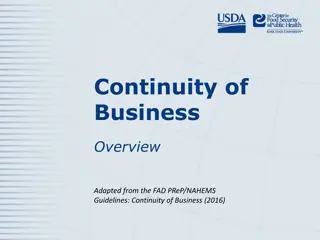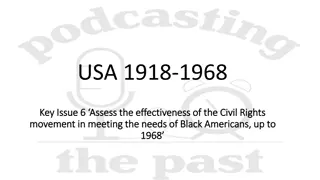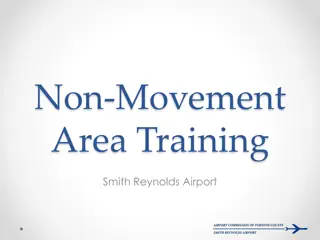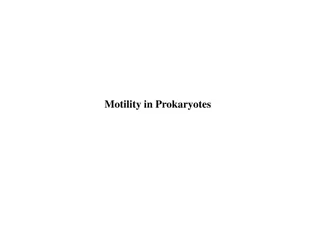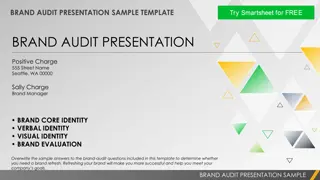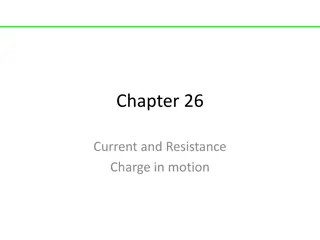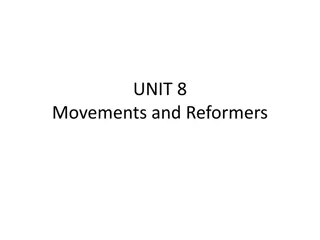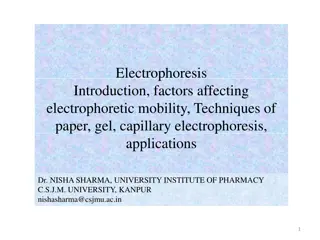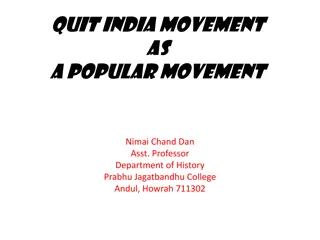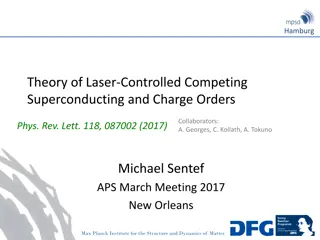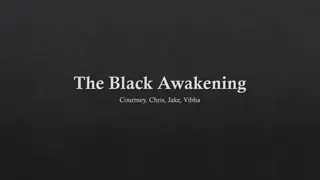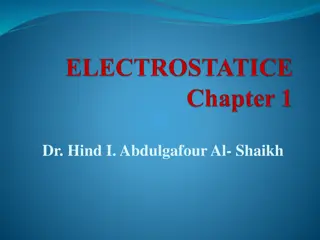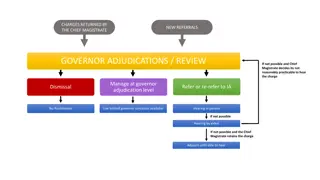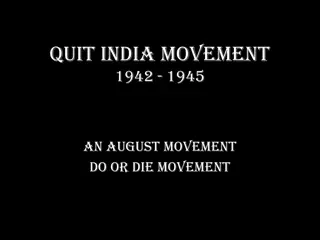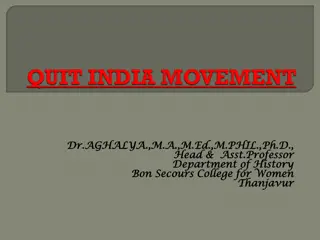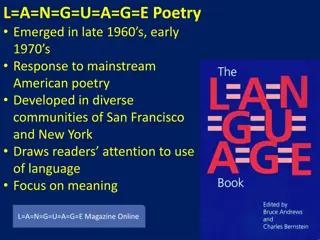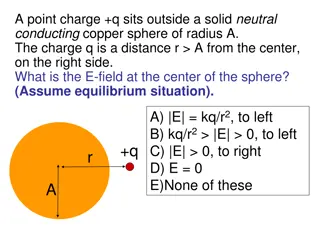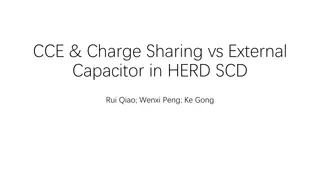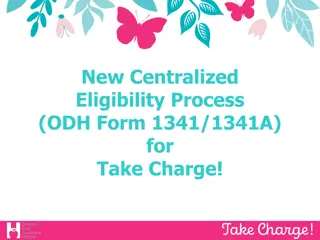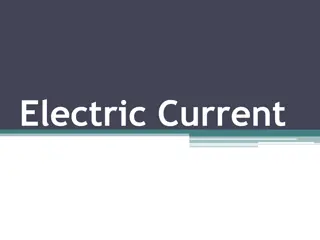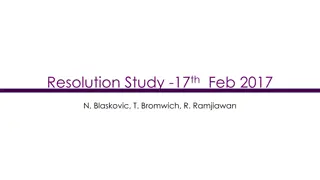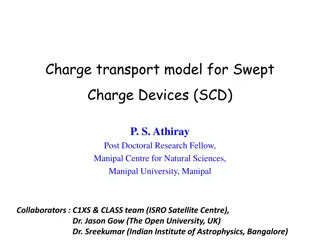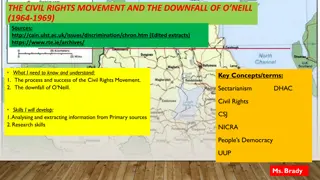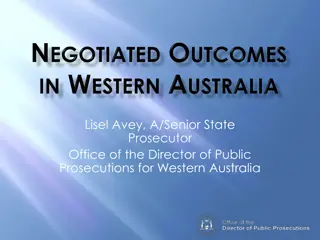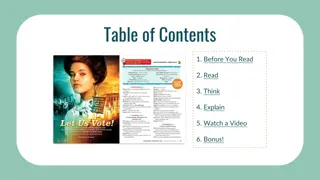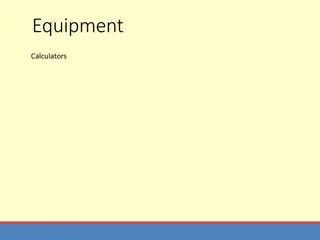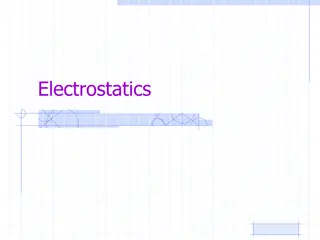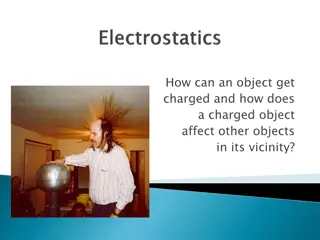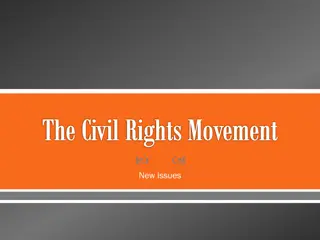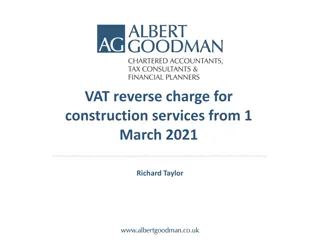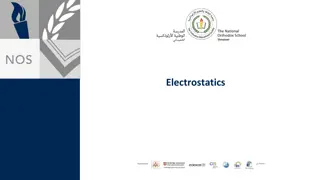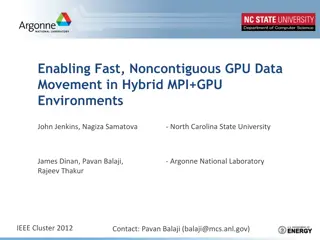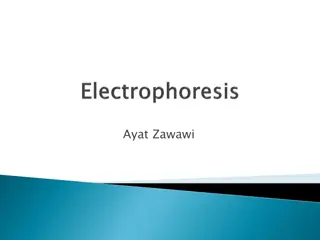High School Civil Rights Movement Escape Room
Engage high school students in an interactive escape room activity focused on key events and figures of the Civil Rights Movement. From segregation to landmark court cases and iconic protests, students will delve into the history through reading materials, questions, ciphers, and sorting tasks. This
2 views • 38 slides
Comparative Analysis of Positive Charge's Charging Stations Evolution
This PowerPoint template example created by Romy Bailey for Positive Charge showcases a comparative study of high-speed charging stations versus traditional charging stations, along with a comparison of past year versus current year data, and a year-over-year analysis of Positive Charge's growth. It
1 views • 6 slides
Understanding Free Movement of Goods in the European Single Market
The European Single Market ensures the free movement of goods among its member states, prohibiting customs duties and equivalent taxes. The establishment of a customs union and harmonization of regulations play crucial roles. Despite the abolition of customs duties by 1968, further objectives like e
3 views • 16 slides
The Slow Food Movement: A Revolution in Food Culture
The Slow Food Movement, initiated by Carlo Petrini in 1986, challenges the fast food industry and advocates for mindful consumption. Petrini's vision promotes awareness of food sourcing, support for sustainable practices, fair compensation for producers, and the enjoyment of nutritious, flavorsome f
1 views • 17 slides
Prarthana Samaj
Prarthana Samaj, meaning "Prayer Society" in Sanskrit, was founded in 1867 by Atmaram Pandurang with the objective of promoting belief in one God and advocating worship of the same. The movement gained traction when Mahadev Govind Ranade joined, with intellectuals advocating social system reforms. I
5 views • 12 slides
Comprehensive Overview of Continuity of Business in FAD Outbreaks
Continuity of Business (COB), also known as managed movement, is a crucial strategy that allows the movement of non-infected animals and non-contaminated animal products during a Foreign Animal Disease (FAD) outbreak. This approach helps maintain normal business operations in agriculture and food in
4 views • 27 slides
The Effectiveness of the Civil Rights Movement in Meeting the Needs of Black Americans up to 1968
Assessing the impact of the Civil Rights movement on Black Americans up to 1968 reveals significant progress in ending racial discrimination and segregation, securing voting rights, and advocating for social and economic equality. Despite achievements like the Civil Rights Act of 1964 and the Voting
0 views • 36 slides
Establishing Safety Standards in Non-Movement Areas at Smith Reynolds Airport
This guide outlines the purpose, definitions, rules, and safety measures for operating vehicles in non-movement areas at Smith Reynolds Airport. It emphasizes standardized ground movement practices to ensure the safety of airport patrons, reduce the risk of injury, and maintain a high level of safet
1 views • 12 slides
Exploring Motility in Prokaryotes: Flagellar, Spirochaetial, and Gliding Movements
Delve into the fascinating world of bacterial motility through three types of movements in prokaryotes: flagellar movement driven by rotating flagella, spirochaetial movement with flexible axial fibrils, and gliding movement observed in certain bacteria on solid surfaces. Additionally, discover how
1 views • 14 slides
Positive Charge Brand Audit Presentation
Conducting a brand audit is crucial to evaluate the effectiveness of Positive Charge, an EV-charging provider striving to reduce the environmental impact of fossil-fuel cars. The audit covers aspects such as brand identity, customer perception, values, competition analysis, and goals alignment to de
0 views • 7 slides
Understanding Current, Resistance, and Charge Motion
Explore the fundamentals of current flow, resistance, and charge motion in this chapter. Learn about the factors influencing current, the behavior of free electrons in metals, and the impact of potential difference on charge motion. Discover Kirchhoff's laws and how current density is calculated.
0 views • 40 slides
Khilafat Movement in India: A Historical Perspective
The Khilafat Movement was a significant event in Indian political history, triggered by the British not fulfilling promises made to protect Turkey during World War I. The movement aimed to safeguard Turkey's holy places, restore its territories, and revive the Ottoman Empire. Despite efforts, includ
0 views • 30 slides
Understanding Electrophoresis: Principles, Techniques, and Applications
Electrophoresis is a technique dating back to principles of electrochemistry, involving the movement of charged particles in an electric field for separation. Factors affecting electrophoretic mobility include charge, particle size, shape, and applied electrical field. Techniques such as paper, gel,
0 views • 22 slides
Overview of Quit India Movement and its Phases
The Quit India Movement was a significant event in India's struggle for independence, marked by various factors leading to its emergence, including the demise of the Civil Disobedience Movement and the rise of nationalist sentiments. The movement escalated in response to the outbreak of World War II
1 views • 9 slides
Laser-Controlled Competing Superconducting and Charge Orders in Transition Metal Dichalcogenides
Hamburg Theory of laser-controlled competing superconducting and charge orders explores the use of lasers to manipulate the ordering mechanisms in transition metal dichalcogenides, leading to ultrafast switching and the induction of new states of matter. This research delves into generic mechanisms
0 views • 13 slides
The Black Awakening: Challenges and Triumphs in African American Civil Rights Movement
In the early 20th century, influential leaders like Booker T. Washington and W.E.B. Du Bois led the fight for political and civil equality for African Americans. Despite facing obstacles such as segregation and disenfranchisement, groups like the Niagara Movement and NAACP emerged to promote racial
0 views • 7 slides
Understanding Electric Charges and Conductors in Physics
Explore the fundamentals of electrostatics, electric charges, conductors, and insulators in physics. Learn about the Law of Electric Charges, types of charge, conductors vs. insulators, and methods of charging objects through friction, conduction, and induction. Dive into the world of atoms, electro
1 views • 14 slides
Procedures and Criteria for Adjudication of Charges by Chief Magistrate
The process of adjudicating charges returned by the Chief Magistrate involves detailed steps, including review by the governor adjudication level and independent adjudicator referral. Factors such as procedural fairness, evidence quality, and seriousness of the charge are considered. If a charge is
0 views • 5 slides
The Quit India Movement 1942-1945: An August Movement
The Quit India Movement, also known as the August Movement or Do or Die Movement, was a mass protest on nonviolent lines in India from 1942 to 1945. Initiated by the Indian National Congress, it called for an immediate end to British rule in India. Led by leaders like Mahatma Gandhi, the movement ai
0 views • 16 slides
The Quit India Movement: A Pivotal Moment in India's Independence Struggle
The Quit India Movement, also known as the India August Movement, was a key event in India's fight for independence led by Mahatma Gandhi in 1942. This movement urged the British to grant India independence through peaceful non-violent protests. It called for an immediate end to British rule, the fo
0 views • 15 slides
Exploring L=A=N=G=U=A=G=E Poetry Movement of the Late 1960s and 1970s
The L=A=N=G=U=A=G=E poetry movement emerged in the late 1960s and early 1970s as a response to mainstream American poetry, focusing on diverse communities in San Francisco and New York. This avant-garde movement emphasized the use of language, drawing readers' attention to the nuances of meaning. No
0 views • 6 slides
Understanding Electric Fields and Charges in Different Scenarios
Explore various scenarios involving electric fields and charges such as the E-field at the center of a conducting sphere, the effect of total charge on E-field, E-field above a charged conductor, charge distribution on the surface of a copper sphere with a hollow, field inside a charged non-conducti
0 views • 9 slides
Comparison of Charge Sharing Mechanisms in HERD SCD
This study delves into the analysis of charge sharing mechanisms in the HERD SCD using simulations and experimental data. It explores the impact of coupling capacitors on charge sharing efficiency and readout strip performance under various conditions to enhance signal detection and improve CCE. The
0 views • 21 slides
New Centralized Eligibility Process (ODH Form 1341/1341A) for Take Charge!
Learn about the new centralized eligibility process for Take Charge! training, including who is required to take it, the goals and objectives, overview, general eligibility criteria, and options for determining Take Charge! eligibility.
0 views • 23 slides
Understanding Electric Current and Electric Potential Difference
Electric current is the flow of electrons moving from one point to another, measured in amperes. The direction of current follows convention, even though electrons actually move oppositely. Current is calculated using the total charge passing a point in a given time. Electric Potential Difference (E
0 views • 22 slides
Analysis of Resolution Study and Charge Scans on 17th Feb 2017
Detailed analysis conducted on 17th Feb 2017 includes resolution calculations, charge scans, attenuation comparisons, and improvements in data fitting. The study compares measured resolutions with predicted scaling, examines the impact of additional information on fitting, and explores peak shifts i
0 views • 30 slides
Charge Transport Model for Swept Charge Devices (SCD) in Astrophysics Research
Exploring the charge transport model for Swept Charge Devices (SCD) in collaboration with various institutions like ISRO Satellite Centre and e2V technologies Ltd. The research aims to enhance spectral response, reduce uncertainties, and improve global lunar elemental mapping using advanced X-ray sp
0 views • 30 slides
The Civil Rights Movement and Terence O'Neill's Demise (1964-1969)
The Civil Rights Movement in Northern Ireland, spearheaded by organizations like the Campaign for Social Justice (CSJ) and the Northern Ireland Civil Rights Association (NICRA), aimed to address widespread discrimination against Catholics. The movement advocated for electoral reform, an end to housi
0 views • 10 slides
Zephaniah: The Savior's Summons to Satisfaction
Stage 2 of the Savior's Summons to Satisfaction in Zephaniah includes the Charge to Wait for the Lord, the Dual Basis of the Charge to Wait, and the Ultimate Motivation of the Charge to Wait. The promise of not putting Jerusalem to shame, a call to rejoice in salvation, and the assurance of consumma
0 views • 10 slides
Understanding Intermolecular Forces in Chemistry
Interactions between static charge distributions in chemistry are governed by Coulomb's Law, playing a crucial role in understanding intermolecular forces. From ion-ion interactions to charge-dipole and charge-quadrupole interactions, the strength of forces varies based on factors like distance and
0 views • 21 slides
Understanding Charge Negotiations and Guilty Pleas in Court Proceedings
Charge negotiations and guilty pleas play crucial roles in criminal court proceedings. Through informal discussions, prosecutors and defense counsel determine appropriate charges and plea deals. A guilty plea entails accepting liability for all charge elements. Factors like evidence strength, public
0 views • 7 slides
Exploring Suffrage Movement Through Scenes and Questions
This comprehensive content presents a structured exploration of the suffrage movement through questions, images, and scenes from a play set in the early 1900s. Readers are encouraged to ponder reasons behind voting, attitudes towards the movement, and the impact of protest actions. The content delve
0 views • 13 slides
Understanding Current and Charge in Electric Circuits
Learn how to calculate current and charge in electric circuits, identify circuit components, and perform calculations using the equation Q = It. Explore the concepts of current, charge flow, and key circuit symbols through practical examples and explanations. Enhance your understanding of electric c
0 views • 20 slides
Understanding Electrostatics: Charges, Objects, and Conservation Law
Electrostatics is the study of stationary electrical charges, where objects can be neutral, positively or negatively charged based on the balance of electrons. The charge of electrons and protons, elementary charge, examples of charge calculation, and the law of conservation of charge are key concep
0 views • 25 slides
Understanding Electric Charge and Interactions Between Objects
Matter is composed of neutrons, protons, and electrons with different charges. Being charged means having an excess or shortage of charge. Grounding, insulators, conductors, and methods of charging play important roles in how objects get charged. By contacting charged objects with objects that can g
0 views • 33 slides
Challenges and Evolution of the Civil Rights Movement
The Civil Rights Movement faced new challenges in the 1960s, with urban African Americans struggling with racism, economic disparities, and social issues. The Kerner Commission highlighted systemic racism, while incidents like the Watts Riot underscored ongoing tensions. The movement also saw a shif
0 views • 11 slides
Understanding VAT Reverse Charge for Construction Services
Overview of VAT reverse charge for construction services effective from 1st March 2021, covered areas, how it works, services covered & not covered, and specifics on labor-only construction services eligible for reverse charge. Details on invoicing, accounting, and transitional arrangements, with ex
0 views • 25 slides
Understanding Static Electricity and Electrostatics
Static electricity is a result of electric charge buildup on insulating materials due to friction, causing electrons to transfer and create a charge difference. This can lead to phenomena like a balloon sticking to a wall. The origin of static charge lies in the electrons and protons within atoms, w
0 views • 9 slides
Fast Noncontiguous GPU Data Movement in Hybrid MPI+GPU Environments
This research focuses on enabling efficient and fast noncontiguous data movement between GPUs in hybrid MPI+GPU environments. The study explores techniques such as MPI-derived data types to facilitate noncontiguous message passing and improve communication performance in GPU-accelerated systems. By
0 views • 18 slides
Understanding Electrophoresis and Its Applications in Biochemistry
Electrophoresis is a vital process in biochemistry that allows for the separation and analysis of charged molecules based on factors such as net charge, size, and electrical field strength. This technique, commonly used in DNA analysis and protein separation, relies on the migration of charged parti
0 views • 14 slides





